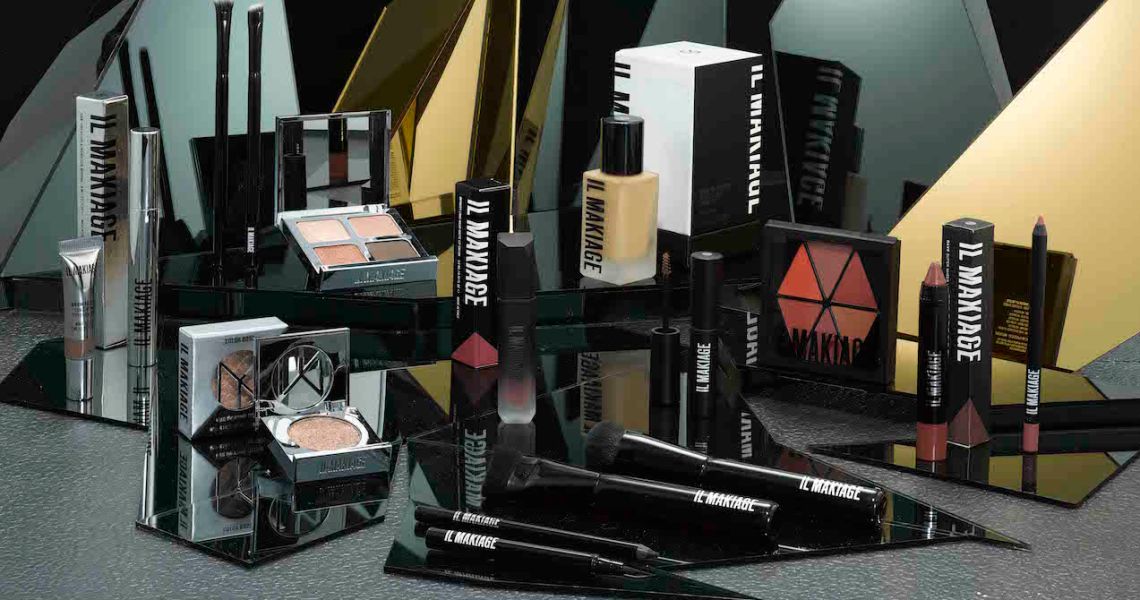The Fenty effect may have ushered in an era of diverse foundation shades, but with 40 or more options, it also allowed for a larger margin of error within shade matching for customers. For its part, Il Makiage is launching on March 7 a foundation-matching quiz (with a proprietary algorithm) and a try-before-you-buy program to solve the issue.
The brand offers 50 shades of its foundation within its assortment and also sells a full range of lip, eye, brow and other face products.
Around 50 percent of women still struggle to find their appropriate foundation match, said Shiran Holtzman-Erel, head of product for the brand. “In the last year, all the brands started to say they have 40 or 50 shades, but it doesn’t solve the problem. If you don’t know your right shade, it’s just a nice thing [for a brand] to have,” she said.
Beginning in December 2018, Il Makiage tested a beta group of customers, who organically found its quiz online. The quiz questionnaire is comprised of seven sections and 18 questions, which look into skin tone, skin concerns and even whether a customer looks better in gold or silver jewelry. Afterward, the user is prompted to enter their email address in order to reveal their shade match and is offered the opportunity to try it for free at home. They are also sent one follow-up email each day over the following seven days. Since the beta test, over 600,000 consumers have completed the quiz. Il Makiage boasted a 90 percent shade accuracy among this set, according to Holtzman-Erel, though she did not elaborate on the source of those results.
Other brands have also tried to tackle foundation-matching and custom-made blends over the past several years. In 2013, Lancôme debuted Foundation Finder, a tool to find the best shade for each complexion, at the Macy’s store in Herald Square. In 2018, the brand took it a step further with the launch of Le Teint Particulier, an in-store machine that mixes raw foundation colors to create an exact match to one’s skin tone. Brands like Jane Iredale, Maybelline, Colourpop, Too Faced and Sephora also offer their own foundation-matching quizzes online.
Oran Holtzman, CEO at Il Makiage, said the brand’s shade algorithm is different from that of other brands mentioned, largely because Il Makiage is letting customers test out a full-size foundation, which retails for $44, for two weeks before they are charged.
“To change a foundation is not an easy thing, and you can’t have an answer [on whether you like it] after one day,” said Holtzman. “If we are confident in our algorithm and shade range, why not offer a deeper experience? It’s hard to evaluate a complex product off of a sample.”
Ad position: web_incontent_pos1
Because most of its customers are not used to being offered a full-size product to try out, customer education will be important for Il Makiage. The primary education feature by the brand has been through its PowerMatch landing page, which details how the questionnaire and the try-before-you-buy program works in three steps.
But Holtzman notes that offering a full-size try-before-you-buy offering is a difficult technical undertaking, as logistics and website operations must be seamless. For example, knowing exactly when a person received a product is crucial, in order for the brand to know when it can process the credit card transaction. Il Makiage declined to specify its percentage of returns, but said it is in line with the brand’s expectations. Returned product is donated to the charity Project Beauty Share, which sends women overcoming abuse, addiction and homelessness gently used or unused beauty products.
Moving forward, the brand plans to expand both the algorithm and the full-size tryout to other products beginning in April, although Holtzman declined to specify which products or categories.
“As a DTC brand, we are more flexible and have more control around voice, prices and product offers. We could never have done what we are doing now, if we has wholesale partners,” said Holtzman. “But having said that, a DTC brand is much harder to grow, so that’s why we are coming up with this technology.”




